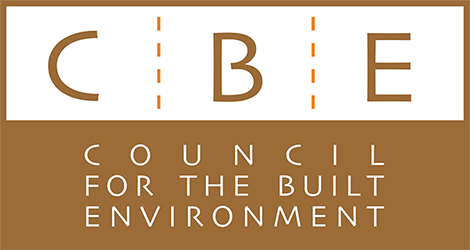Overcoming Leadership Barriers for Women in the Built Environment Sector: #AdvancingHer
As the Council for the Built Environment (CBE), a developmental regulator, we believe that women in our sector deserve recognition and appreciation. September, celebrated in our country as Heritage Month, provides us with an opportunity to shed light on the significant role that women have played in shaping our Built Environment, their invaluable contributions to nation–building and the development of a democratic society. Throughout history, women in our country have been overlooked or marginalised when it comes to their role in the Built Environment. Yet, their influence and impact are undeniable. From architects and urban planners to engineers and construction workers, land surveyors, quantity surveyors, among others, women have made substantial contributions to shaping our cities, infrastructure, and public spaces.
However, there have been recent efforts and policy changes as well as targeted interventions to bridge this gap and promote inclusivity. In celebrating Heritage Month, we must be deliberate in highlighting the achievements and showcasing the stories of these remarkable women who have defied convention and triumphed in their fields. By acknowledging their efforts, we can inspire future generations of women to pursue careers in the Built Environment and break down barriers that have restricted their participation.
Moreover, recognising the role of women in the Built Environment aligns with the CBE’s commitment to promote diversity and inclusion in our society. By encouraging equal opportunities and representation in the workplace, we not only build more vibrant and dynamic communities, but we also create a more inclusive society that values and respects the contributions of all its members.
It is against this background that, in celebrating Heritage Month, CBE will convene a webinar titled “Advancing Her: Overcoming Leadership Barriers in the Built Environment”, aimed at raising awareness and fostering conversations about the role of women in the Built Environment, and providing a platform for women in the sector to share their experiences and inspire others.
It is our considered view that by showcasing their achievements, we empower women to pursue careers in these fields and contribute to the development of our nation and the advancement of our democratic ideals.
We are mindful that often we hear inspiring slogans and catchphrases promoting gender equality and inclusivity, and not limit the CBE’s endeavours to just ‘sloganising’. It is crucial for us as CBE to go beyond the webinars and showcase women in our sector, together with a focus on practical measures that can bring about tangible change.
To ensure that women have equal access to opportunities and are empowered within this sector, there are several practical steps we are implementing as part of our transformation agenda:
- Education and Skills Development: The CBE is partnering with various agencies to ensure that tailor-made skills development programmes, specifically for women in the Built Environment, help them with the necessary knowledge and expertise to succeed in the sector. In addition, CBE conducts career awareness programmes to encourage girls to pursue STEM subjects and create mentorship programmes.
- Promoting Leadership and Visibility: Profiling women in leadership positions to showcase their achievements is in our toolkit to promote inclusivity, increase their visibility and provide inspiration for future generations.
- Building Supportive Networks: The CBE’s Women Empowerment and Gender Equality (WEGE) Transformation Collaborative Forum (TCF) provides a platform for networking, fosters collaboration, mentorship, and knowledge sharing and support groups for women in the Built Environment. The TCF serves as a valuable resource for career development, sharing experiences, and overcoming challenges faced by women in the sector.
- Encouraging Diversity in Hiring and Promotion: CBE is also advocating and lobbying government, state entities, private sector, and tertiary institutions to adopt diverse hiring and promotion practices. Our view is that actively seeking qualified women for positions and ensuring equal opportunities for growth and advancement can create a more inclusive work environment.
- Advocacy and Awareness: Raising awareness on women empowerment in the Built Environment is instrumental in driving change.
It is important to recognise that ensuring inclusivity and access to opportunities for women in the Built Environment is a long-term commitment that requires continuous effort. By addressing these practical steps and implementing them with dedication, we can make substantial progress towards a more equitable and diverse Built Environment sector.
Issued by:
Dr Msizi Myeza
- Chief Executive Officer
- Council for the Built Environment
- Tel: 012 346 3985
- www.cbe.org.za
Enquiries:
Ms. Nosizwe Mokoena
- Strategic Support and Engagement Specialist
- Mobile: 078 415 9211
- Email: nosizwe@cbe.org.za
Ms. Sinah Ndala
- Communication Associate: CBE
- Mobile: 078 423 1942
- Email: sinah@cbe.org.za
